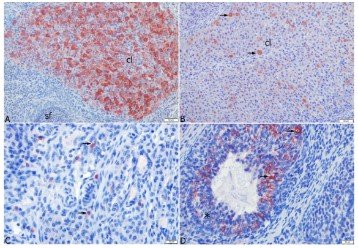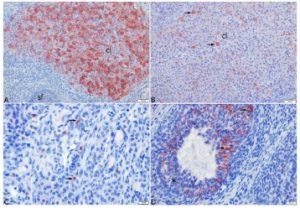
Polycystic ovary syndrome (PCOS) is among the most common endocrine disorders. It represents a significant cause of female infertility. PCOS affects 10–25% of women of fertile age. However, despite numerous researches, the cause of PCOS is not fully understood yet.
Several hormones have an important role in regulating reproduction. Among many others, anti-Müllerian hormone, and kisspeptin-1 (KISS-1) are the hormones directly related to reproductive function in females.
Because the exact causes and mechanism of development of PCOS are still not clear, a team of researchers from the University of Firat has investigated the role of the expression of anti-Müllerian hormone, kisspeptin-1 and kisspeptin-1 receptor (KISS1r) in polycystic ovary syndrome (PCOS) in rats. Additionally, the group studied the controlled ovarian stimulation, aimed at increasing fertility, and raising the pregnancy chances. The research group studied controlled ovarian stimulation using hormonal, histopathological, and immunohistochemical analysis.
Findings of their study, published in the journal BJBMS, revealed that ovarian KISS1r density was higher in the estrous and controlled ovarian stimulation groups. The highest levels of anti-Müllerian hormone were determined in the estrous group.
The results of the study suggested that anti-Müllerian hormone had no effect in the development of controlled ovarian stimulation and PCOS in rats, but kisspeptin played a role in the development of controlled ovarian stimulation in rats.
Reference:
Risvanli A, Ocal H, Timurkaan N, Ipek P, Seker I, Karabulut B. Expression of the anti-Mullerian hormone, kisspeptin 1, and kisspeptin 1 receptor in polycystic ovary syndrome and controlled ovarian stimulation rat models. Bosn J of Basic Med Sci; 2020;20(1):37-3. Available from: https://www.bjbms.org/ojs/index.php/bjbms/article/view/4281
doi: 10.17305/bjbms.2019.4281.
Editor: Edna Skopljak

Leave a Reply